Frequently Asked Questions About Our Chickens
We are in discussion about expanding our flock of chickens. January is a good time for us to get baby chicks because it takes approximately 6 months before the baby hens start laying eggs for consumption. Since we tend to travel during our summer months, older chickens have a better survival rate here in our hot climate. Currently, we are down to 5 mature hens and 1 very old duck. As hens mature, egg laying diminishes. Typically a hen slows down the daily egg laying process when she is 3+ years old.
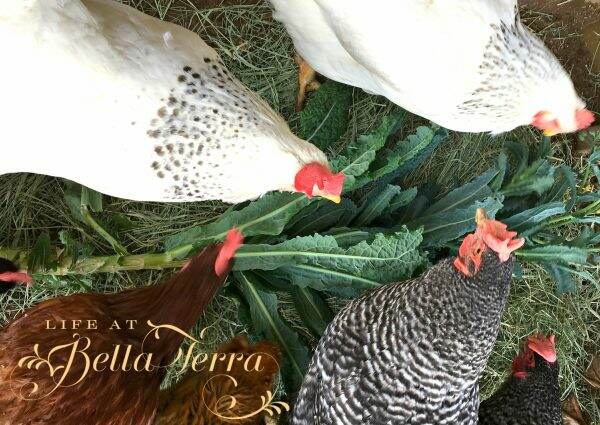
Why Chickens?
Often I get questions about our chickens. I don’t recall the day we made the decision to have chickens. When we were living temporarily in a double wide trailer while restoring Bella Terra (that’s a complete story in itself!), I remember having 2 toddlers, a newborn, a puppy and baby chicks. All of us happily living in a 24′ by 56′ manufactured home. Crazy times.
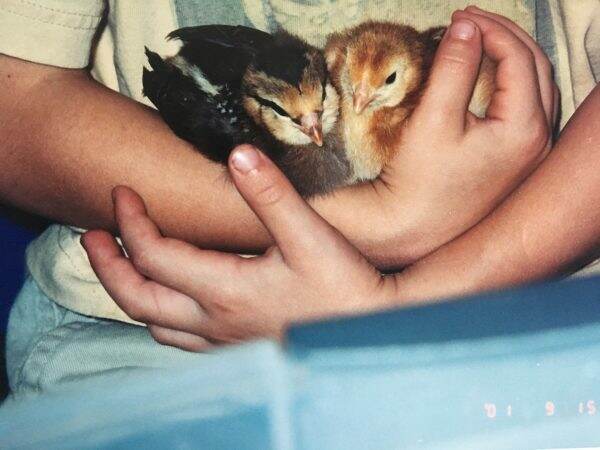
Where do you buy chickens?
Locally, we have a few feed stores that sell baby chicks. Check your local listings to see what is available in your area like Craigslist or Etsy. Chicken farms nearby may also sell their chicks. Some hatcheries will mail baby chicks. I know it seems odd, but we have received chickens this way. Use a reputable company like McMurray or Hoover’s Hatchery
Where do the Chickens live?
I designed our hen house specifically for our feathered friends. Located adjacent to my garden, it makes sense to share my extra garden produce to the residents next door. To see more design details to this sweet building, click here.

Chickens need a certain amount of room. Both the interior and exterior spaces are designed for up to 25 chickens. If you are considering a hen house, please do the research to see how many chickens your quarters will accommodate. Crowding chickens can lead to both behavioral and health problems.

Choosing the right Breed of Chicken
More than 1600 different chicken breeds are recognized worldwide. Since our goal is to have fresh eggs, we look for good layers with a variety of egg shell colors. Some of the more exotic chickens are beautiful to look at, but do not produce many eggs and many not be very hearty.
Some breeds are known for being the best egg layers. Do your research if you are looking for other uses for your chickens.
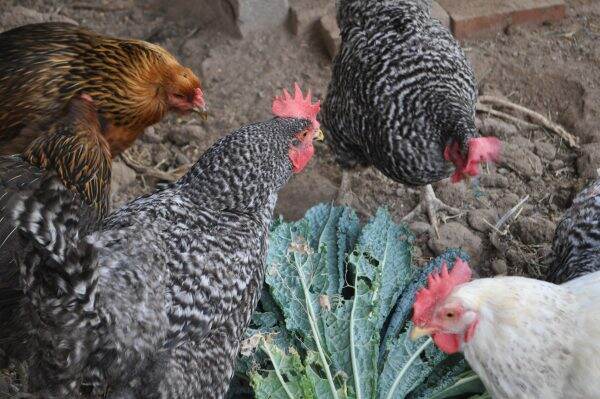
Australopes, Wyandotts, Barred Plymouth Rock, Leghorns, Orpingtons, Rhode Island Reds and Blue Ameraucanas are a few good laying breeds.
How Long do Fresh Eggs Keep?
When an egg first comes out, it is covered in a wet coating and then dries within seconds. This invisible coating is called the “bloom” and works to keep air and bacteria from seeping through the pores of the shell.
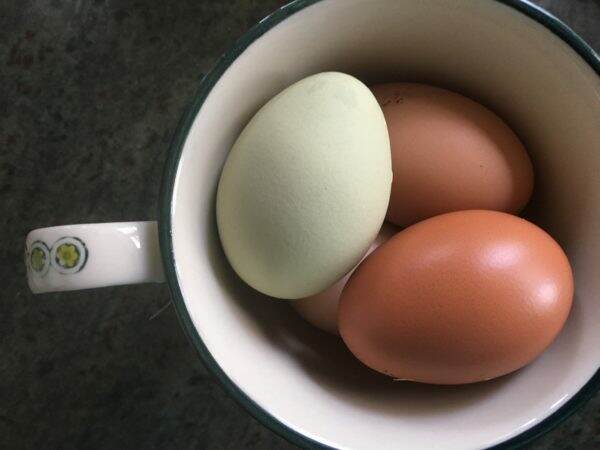
In the United States, commercial egg growers are required to wash their eggs, which then requires refrigeration. Unfortunately, washing off the bloom accelerates the aging of the egg.
We do not wash our eggs and if I do, it is just before I use them. I have read that an unwashed egg can last up to a year! If you go to another country, often times eggs are not refrigerated. That’s because the bloom is still on the egg and provides protections from deterioration.

How Do You Tell if an Egg is Old?
Gently drop an egg into a glass of water. If an egg sits flat on the bottom of the glass, it is fresh egg. If the egg floats, it may still be good but it is definitely an older egg. As it continues to age, more air enters the shell and it will float at a steeper angle. With hens laying fresh eggs daily, there is no need to eat an old egg.
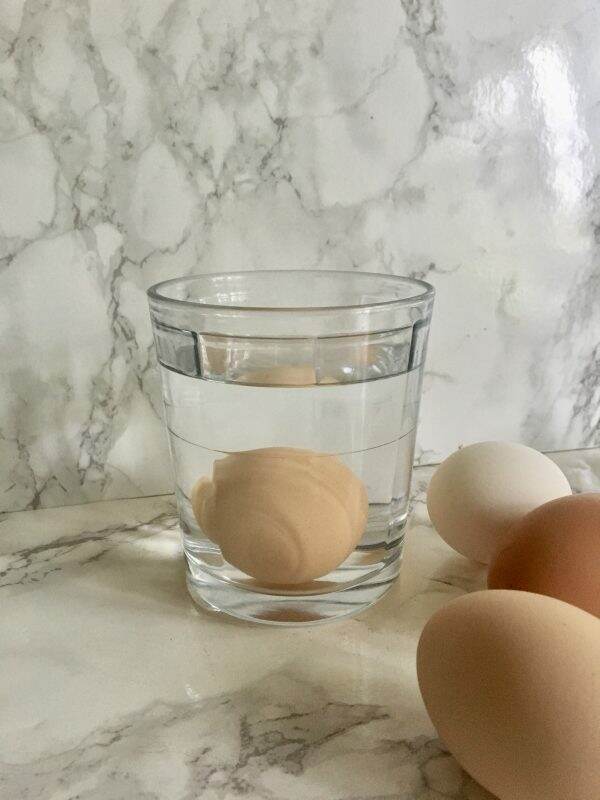
Why are Hard-boiled Fresh Eggs Hard to Peel?
As an egg ages, air gets in through the pores on the shell. The air forms a pocket between the membrane and the shell making it easier to peel. Older eggs are best hardboiled. Fresh eggs have little to no space between the membrane and the shell~hence making them more difficult to peel.

Does a Chicken Lay an Egg Every Day?
First, the female chicken, a hen, will lay eggs. It depends on the breed as some hens lay more eggs than others. Typically, a hen will lay only one egg per day but can also skip days. The average hen will lay approximately 300 eggs per year. Chickens require a minimum of 14 hours of daylight per day in order to lay. Therefore, hens typically lay more eggs in the spring and summer, and slow down in the winter months.
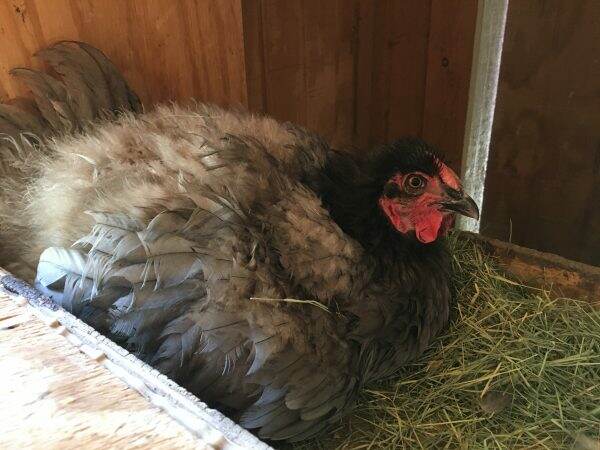
Does a Female (hen) need a male (rooster) in order to lay an egg?
No, the female lays eggs regardless. The hen (female) does need a rooster (male) if she is laying a fertilized egg = baby chicks.
Why Don’t You Have Any Roosters?
The City of Phoenix does not allow male poultry within the City limits. Since it is rather difficult to determine the sex of a baby chick, we have had roosters. Typically we discover a rooster when a neighbor calls to complain about the crowing.
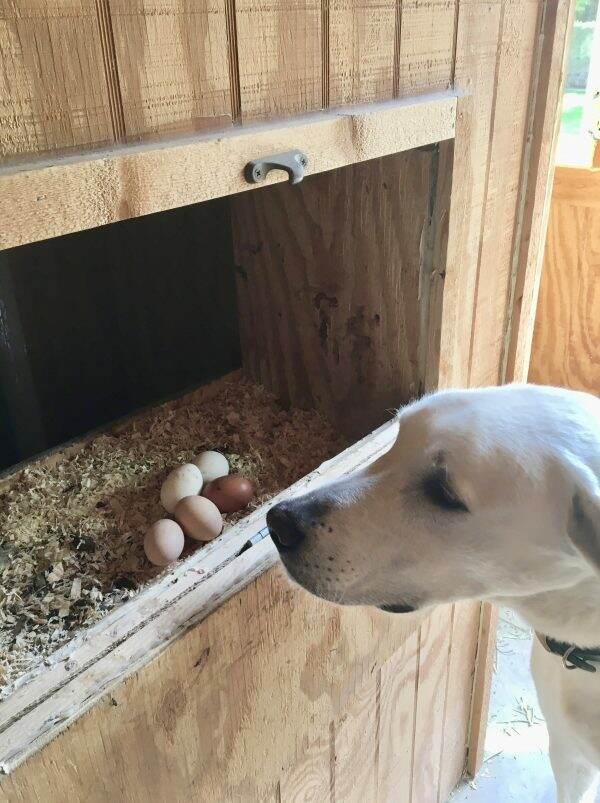
If you are considering raising chickens, please check with your local zoning laws to make sure you are compliant with city requirements.
Do Rooster only Crow in the Morning?
No, they tend to crow all the time. This can be a nuisance for your neighbors.
Is there Really a Pecking Order?
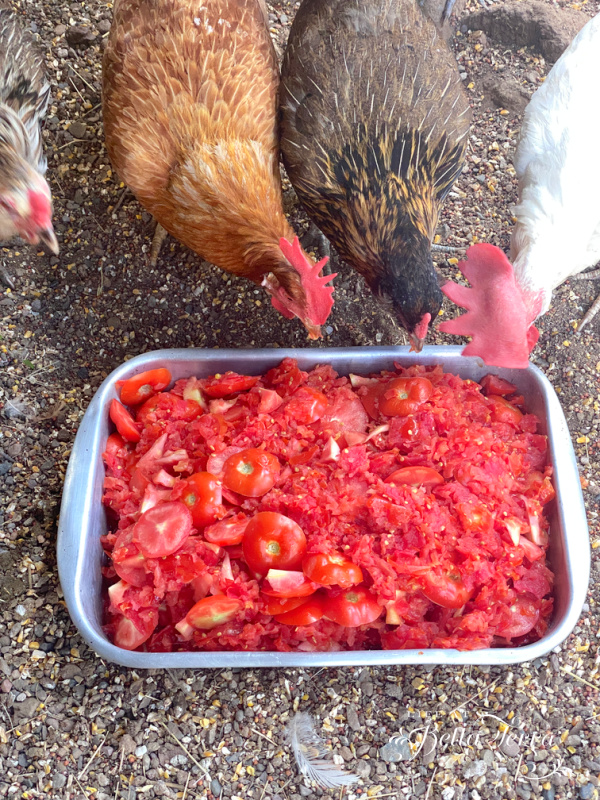
Yes, the chickens do determine their own hierarchy of status. It is unpleasant to see older chickens pecking at younger ones, or healthy ones doing the same to sick hens. But it is the nature of chickens and the place in the flock is important to the survival of the fittest.
Why are the Eggs Different Colors?
The color of the egg is based on the breed of chicken. We have white, brown, tan, blue and green egg layers. But like people, we may be different colors on the outside but the inside of the egg is the same.
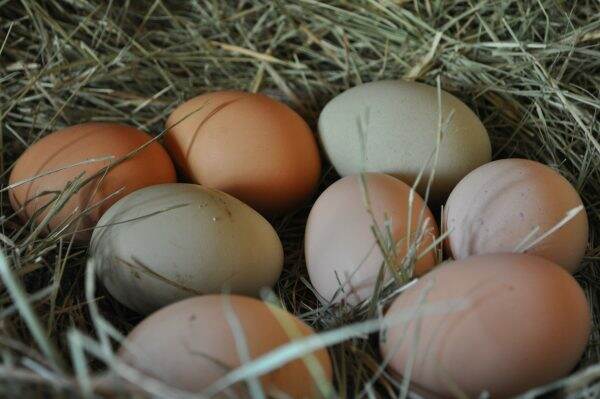
Do You Let Your Chickens Free Range?
Yes, with some supervision. We keep our dogs inside while the chickens roam the yard. Since we have birds of prey (hawks, owls, etc.) we let them stay outside but for a shorter period of time. Chickens are a natural way to control the bug population in your yard.
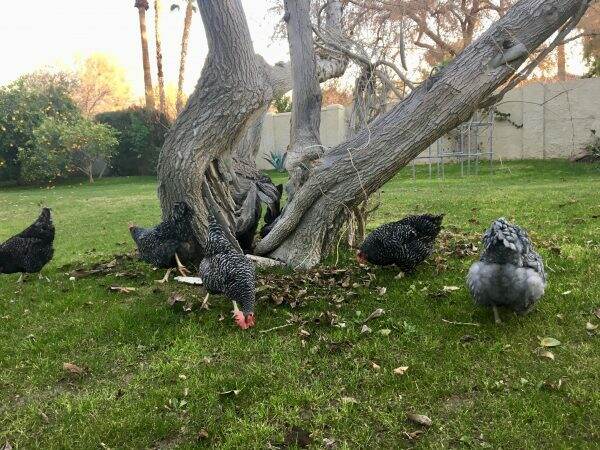
Do You Eat Your Chickens?
No, we do not. When the children were little, they would name the hens. It is hard to think about eating Fluffy or Spotty.

Though we do not name the chickens now, we still do not eat them.
What Do Chickens Eat?
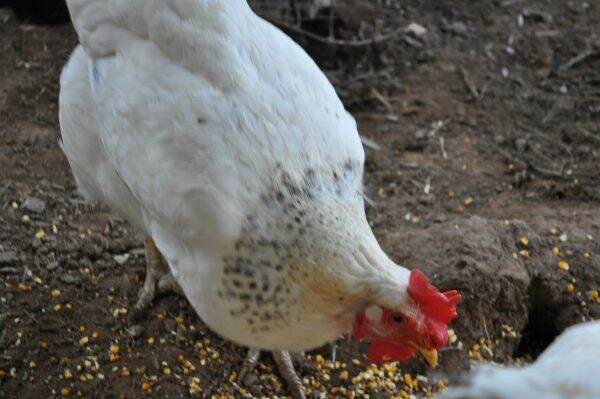
We provide them with scratch and crumble. With scratch, they use their toes to mix up litter or scrape the ground in search of various seeds, greens, grit, or insects to eat. Spreading scratch grains (cracked, rolled, or whole grains such as corn, barley, oats, or wheat) encourages this behavior. Crumble is their actual food that provides the nutrients they need. The crumble is placed in a feeder.
We also feed them oyster shells which provides calcium to help create nice, strong shells on the eggs.
Do You Give Your Chickens Treats?
Yes, they get fresh greens from the garden, any healthy kitchen scraps and I spoil them with dried black soldier fly larvae called Grubblies~~they LOVE this!
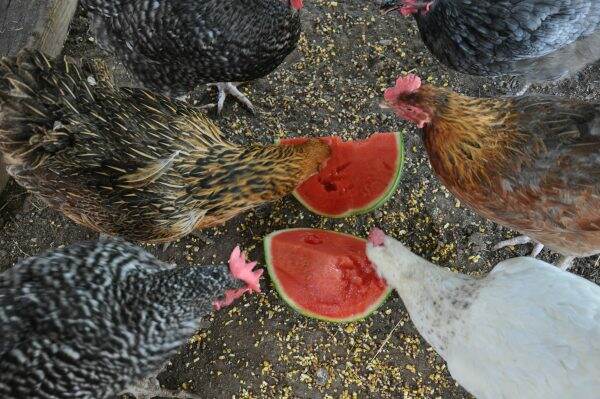
I also add fresh herbs and flowers to their nesting boxes. Not only does it look pretty and smell nice, while keeping the bugs out. Who wouldn’t want to lay an egg in a nest of rose petals?
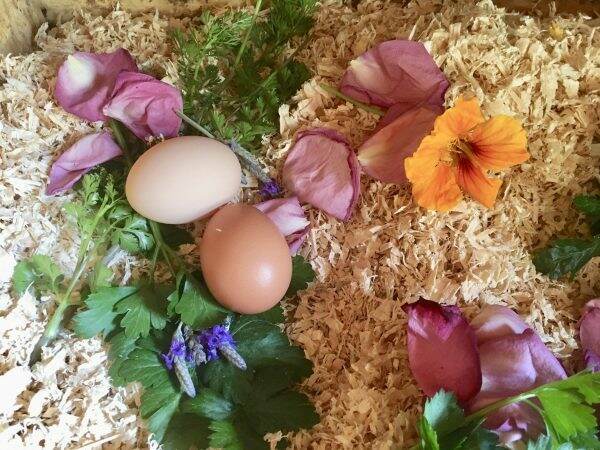
I hope you enjoyed this information on chickens and eggs! Honestly, the taste of fresh eggs will far exceed anything you buy in the grocery store. Since commercial growers wash their eggs before they are shipped for distribution, the egg is already unprotected and losing freshness. This doesn’t happen with homegrown eggs.
If you are considering raising your own chickens, I encourage you to do so. It is so well worth it and the work is fairly minimal. If you have any further questions or comments, let me know.
Thanks for joining me today to learn all about chickens!


Just a reminder that any words that are italicized bring you to the source. If it is a product on Amazon, please note that I am an Amazon Affiliate. If you purchase something through my website, I receive a small (very small!) stipend, which doesn’t affect the price you pay at all. My goal is to make sourcing the items easy for you. Thank you for your continued support.

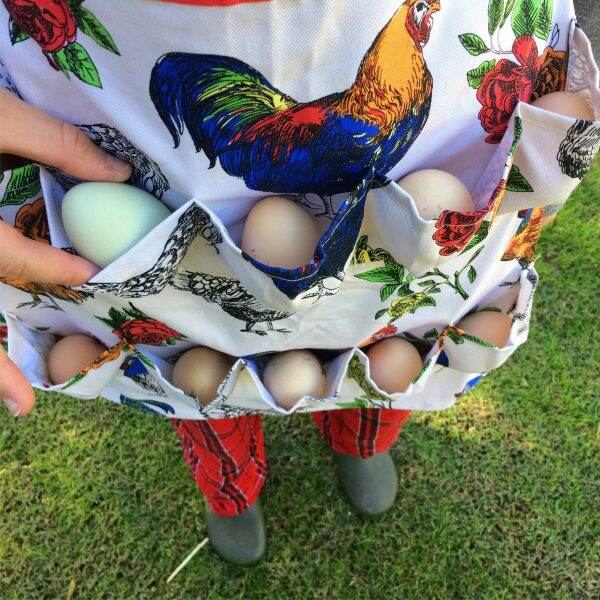

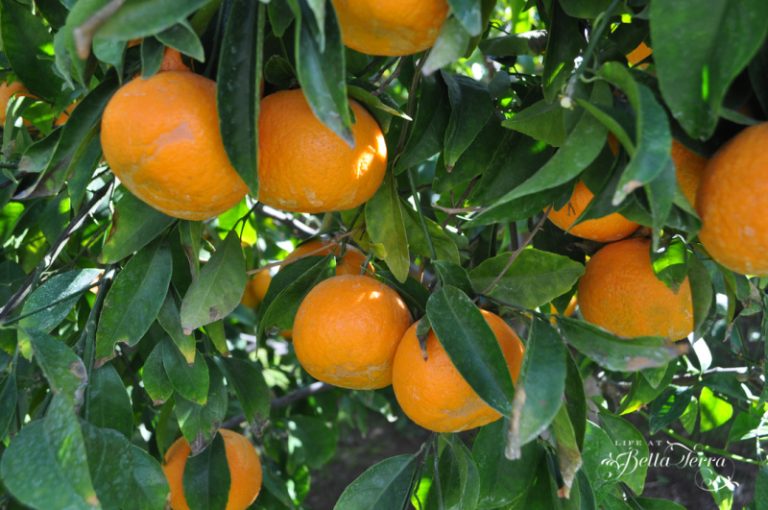

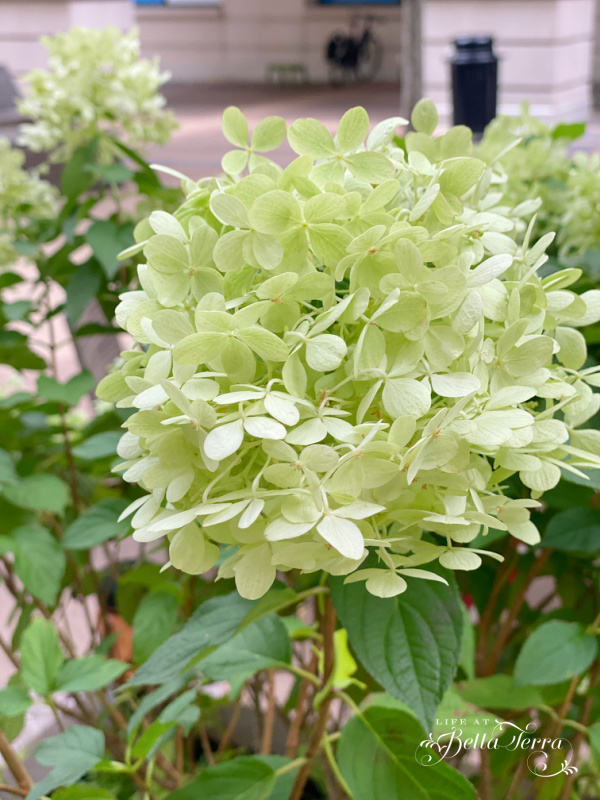


I love coming and visiting your chickens!!
Chloe, and they love to see you too!
Love ur post. Had chickens as a little girl and loved them all
I just saw some wire spheres people put a chicken in each and they can walk all around and no bird of pray can get them.
Sounds funny but it works.
Diana, I have seen those wire spheres too, but it must be quite the chore to put your chicken into one! Ha!
I LOVED this post, Mary! I learned so much! What a neat thing to raise your own chickens. That is just the coolest thing ever.
I also loved this post! Our HOA does not allow them – and our property borders the wild desert, so the hens would attract predatory wildlife. We often have a huge owl sit on our deck rail, surveying the valley below for tasty treats.
Lynn, yes, the owl would love the chicken snack during an afternoon hunt. We have birds of prey here but occasionally we will let the chickens out in the late afternoon for a short walk-about so they can free range. Since they automatically file back into the hen house at dusk I feel like they aren’t exposed to a potential attack that long. But those owls are quick…
Fascinating! As always, I really learned a lot! Thank you, Mary.
Sue, thank you so much for your sweet comment!
Wow. Had no idea this was part of your life. Wondering where your interest came from. Thanking you for sharing this part of your life. Hugs
What beautiful images to paint! This is my favorite blog ever!
I loved this post, Mary! Thanks!